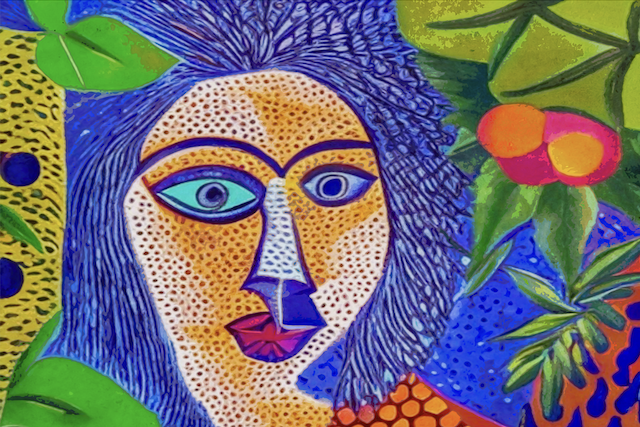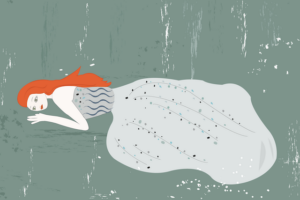The Artwork of Being Flawed in a Perfectionist World


“Perfection shouldn’t be attainable, but when we chase perfection, we are able to catch excellence.” ~Vince Lombardi
Okay, let’s be actual for a second. As I sit right here making an attempt to write down this good essay about embracing imperfection, the irony isn’t misplaced on me. I’ve rewritten this opening paragraph about 5 instances now. Outdated habits die laborious, proper?
Image this: It’s 2:37 p.m. on a Wednesday afternoon. I’m pacing the lecture corridor, watching my legislation college students furiously scribbling away at their examination papers. Their furrowed brows and white-knuckle grips on their pens remind me of, properly, me, not too way back.
Flashback to my very own legislation faculty days. There I used to be, the quintessential overachiever. Nostril perpetually buried in a casebook, surviving on a weight loss plan of espresso and sheer dedication. Good grades, good internships, good profession trajectory—these weren’t simply objectives, they have been my total identification. The strain I placed on myself was so intense, I’m shocked my hair didn’t flip grey by commencement. (Spoiler alert: It’s beginning to now, however I digress.)
Quick-forward to my transition from training legislation to educating it. I assumed I had all of it discovered. Professor Kalyani Abhyankar, the flawless authorized thoughts, right here to form the subsequent era of legal professionals. Ha! If solely I knew what I used to be in for.
It was throughout one notably “memorable” lecture that my perfectionist facade started to crack. I had spent hours getting ready what I assumed was a flawless presentation on constitutional legislation. I used to be on fireplace, if I do say so myself, rattling off case citations like a human authorized database. After which it occurred. I combined up two landmark circumstances.
The horror! The disgrace! In that second, I swear I might hear the ghost of Justice Brandeis weeping. I stood there, frozen on the podium, ready for the bottom to swallow me complete.
However then one thing sudden occurred. A scholar raised her hand and requested, “Professor Abhyankar, are you okay?”
And identical to that, the dam broke. All my insecurities got here flooding out in entrance of my class. My concern of not being adequate, the crushing weight of all the time needing to be good, the nervousness that one mistake would unravel my total profession.
To my utter shock, as a substitute of judgment, I used to be met with… understanding? Empathy, even? One in every of my college students truly stated, “Wow, Prof. We all the time thought you have been this untouchable authorized genius. However this… this makes you human. It’s type of inspiring, truly.”
Inspiring? Me? The one having a meltdown in entrance of her class? However as I appeared across the room, I noticed nodding heads and relieved faces. It was as if by displaying my very own vulnerability, I had given them permission to be imperfect too.
This was the start of my messy, usually irritating, however finally liberating journey towards embracing imperfection. And let me let you know, it wasn’t a clean experience.
At first, I attempted to schedule “imperfection time” into my day. Sure, you learn that proper. I, Kalyani Abhyankar, recovering perfectionist, tried to good the artwork of being imperfect. The irony shouldn’t be misplaced on me, I guarantee you.
There have been setbacks galore. I’d resolve to be extra laid-back in school, solely to search out myself obsessively color-coding my lecture notes at 2 AM. I’d promise myself I wouldn’t overthink my college students’ questions, then spend hours agonizing over whether or not my off-the-cuff reply about tort legislation was complete sufficient.
However slowly, oh so slowly, issues started to shift. I began to concentrate to my classroom with new eyes. I seen how essentially the most participating discussions usually arose from questions I couldn’t reply instantly. I noticed how college students realized extra from working by way of errors than from memorizing good responses.
Listed here are a few of the adjustments I stumbled my manner by way of:
1. Working towards self-compassion
As an alternative of berating myself for each perceived failure, I attempted to deal with myself with the identical kindness I’d provide a struggling scholar. This meant acknowledging my efforts, whatever the consequence. And sure, typically it meant trying within the mirror and saying, “You’re doing okay, Kalyani,” even once I felt like a complete impostor.
2. Setting lifelike objectives
Relatively than aiming for an unattainable normal of perfection, I realized to set difficult however achievable objectives. This allowed me to have a good time progress and keep motivation. Novel idea, proper?
3. Embracing the educational course of
I began to view errors—each mine and my college students’—not as failures however as priceless educating moments. Every setback turned a possibility to deepen understanding and foster crucial considering. Who knew that “I don’t know, let’s determine it out collectively” might be such highly effective phrases in a classroom?
4. Cultivating a progress mindset
As an alternative of seeing authorized aptitude as mounted, I started to emphasise to my college students (and myself) the capability to develop expertise by way of effort and observe. This made us all extra keen to deal with difficult authorized issues, even when we didn’t all the time get it proper the primary time.
5. Letting go of comparability
I noticed that continually measuring myself towards different professors or authorized students was about as productive as making an attempt to show constitutional legislation to my cat. As an alternative, I targeted on my distinctive strengths as an educator and mentor.
Now, don’t get me fallacious. I nonetheless have days the place my interior perfectionist rears its meticulously groomed head. I nonetheless often discover myself up at midnight, agonizing over a single phrase selection in my lecture notes. Rome wasn’t in-built a day, and recovering perfectionists aren’t cured in a single day.
However right here’s the kicker: As I’ve realized to embrace my imperfections, I’ve truly grow to be a greater professor. Free from the paralysis of perfectionism, I’m extra artistic in my educating strategies, extra keen to deal with controversial authorized subjects, and extra open to suggestions from college students and colleagues.
My college students appear to choose this new, barely messier model of Professor Abhyankar. They’re extra engaged, extra keen to take dangers of their considering, and—dare I say it—they appear to be having extra enjoyable. Who knew that constitutional legislation might truly be pleasurable?
To these nonetheless caught within the grip of perfectionism, whether or not in legislation faculty, authorized observe, or another subject, I provide this hard-won knowledge: Your value shouldn’t be decided by flawless efficiency. There’s profound energy in vulnerability, in admitting that you just’re nonetheless studying and rising.
Embrace your imperfections. They’re not weaknesses to be hidden however distinctive points of who you’re as an expert and human being. Let go of the exhausting chase for perfection and as a substitute, chase progress and authenticity.
In doing so, you might discover that you just obtain issues far higher than perfection—you obtain a life that’s absolutely and superbly lived. And if you happen to occur to combine up just a few Supreme Courtroom circumstances alongside the way in which? Nicely, you’re in good firm.
About Kalyani Abhyankar
Kalyani Abhyankar is a professor of legislation and mindset coach, specializing in administrative legislation and client safety. She is obsessed with serving to others domesticate a limitless mindset and private progress by way of her work on LinkedIn and past.






